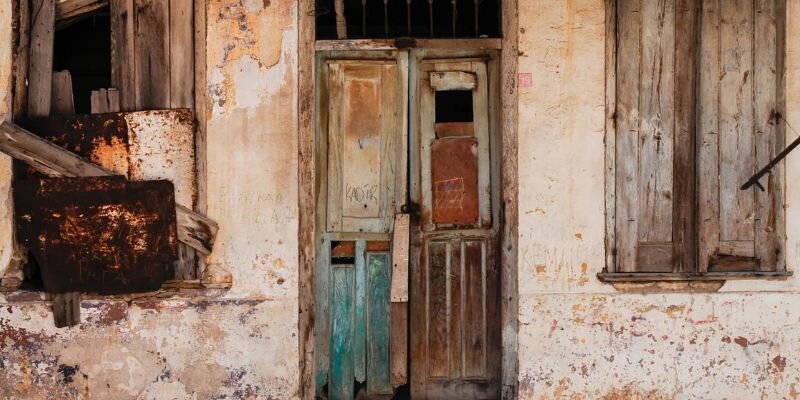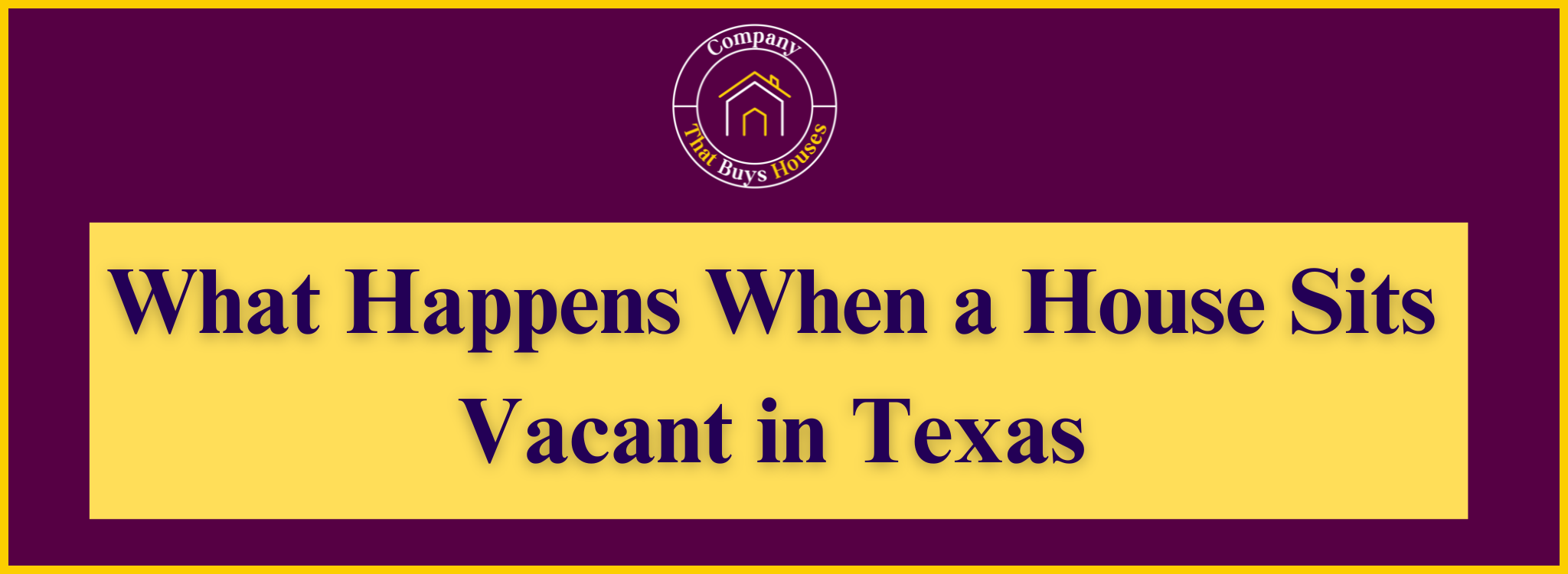
What Happens to Utilities in a Vacant House in Texas?
The situation of a single dwelling vacant in Texas poses some problems to contacted utilities. Damage such as a leak or a burst pipe worsens drastically when no one is home. With no one to keep the utilities organized, the loss of the underlying structures and systems will fully degrade and perhaps go unserviced for long. With no services connected, the deterioration of the property value will easily spiral to the repairs exceeding the initial value.
Should You Cancel or Maintain Utility Services?
Evaluating vacant property and considering the angles utility works for or against it is a dilemma. Savings to the detriment of frozen pipe gain is something to consider during the winter. If the house is under an insurance blanket covering empty dwellings, then the utility stream should also be kept on. Keeping some utilities connected seems to be the most balanced way to sustain the value of the empty property. This is best achieved with remote-controlled “smart” devices for devices left in unattended homes.
How to Prevent Water Damage in a Vacant Home?

Preventing water damage in a vacant property can be very costly. Because of this, a home can hold tremendous value. Construct a seasonal schedule for inspections, and be on call for repair work. A vacant home insurance policy can help mitigate potential losses. Engaging with a qualified property manager can help avoid costly damage by conducting preventative maintenance.
How Can Property Value Be Affected by Vacancy?
With time, a vacant house in Texas can lose value. When a property is left unoccupied, it often declines in condition, which in turn declines in market worth. This can result in an increase in property taxes and difficulty selling the home profitably. Following the Texas market closely can help ease the negative impacts.
Understanding Depreciation in Vacant Properties
Depreciation occurs in vacant properties because they are subject to neglect. An unoccupied home is subject to damage, which then lessens the overall worth. In Texas, the climate can exacerbate this situation. Inspection and maintenance of the property need to be carried out in a timely fashion in order to avoid loss in property value.
Are There Financial Implications with Property Taxes?
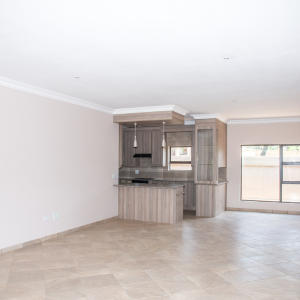
Texas vacant properties carry unique financial responsibilities, especially in real estate taxes. These properties do not have the potential subsidies an occupied property may have. Understanding property taxes in Texas allows owners to strategize on financial real estate decisions. A drop in a property’s worth can decrease the property taxes in some cases. Strategic tax planning can mitigate the exposure to tax obligations.
What Are the Security Risks for an Unoccupied House?
Unoccupied homes can also face the threat of spontaneous vandalism as well as having squatters. Both can be costly as they bring the owner charges that need resolving, especially when dealing with squatters. The use of advanced technology can improve home safety. Put simply, a timer that regulates the door lock may be the easiest step to safety. There are plenty of safety strategies that can be used which keep your vacant home safe.
How to Mitigate Risks of Squatters and Vandalism?
There is a need for proactive steps in property management when squatting and vandalism is an issue. A well planned and frequent surveillance of the area improves over sight and vulnerability. In the extreme, the use of security cameras is enough, otherwise a dedicated management who patrols the area serves the same purpose. It is important to appreciate the extent of the squatter issue and employ tactical methods to the associated legislation in order to afford legal protections.
What Security Systems Are Recommended for Vacant Houses?
Buying security systems for empty houses ensures safety. Devices such as cameras and motion detectors enable monitoring in real-time. These systems allow homeowners to manage the property and take proactive actions in case of a breach. High-end security systems offer unparalleled protection and ensure that your asset is properly shielded, minimizing any worries.
How Does Insurance Change for Vacant Homes?
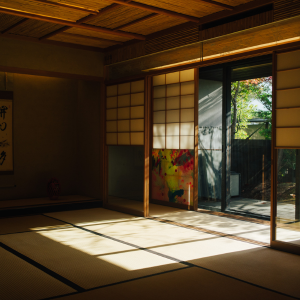
When a house is unoccupied, its insurance has to change quite a bit. Most insurances under homeowner cover for a house that is empty for an extended period. This is the instance where the insurance policy of a vacant home comes in handy. Here are the things to take note of:
- Change in Policy: Give your insurance agent a heads-up as soon as you notice your home as empty. This is not the orthodoxy, since insurance companies might need to modify your region of protection in customizing a policy to cover the home.
- Higher Price: An unoccupied house can prove expensive to insure due to vandalism and the weather. You need to look at many quotes, know the options available, and purchase accordingly.
What Are the Challenges of Getting Insurance for Vacant Properties?
Getting insurance for vacant properties can be tough because of:
- Larger Liability: A vacant home is an easier target for theft, vandalism, and other issues, which makes it easier to target. This can drive your premium higher.
- Policy Changes: Family homeowners might alter their existing policy or obtain a separate vacant home policy for proper coverage.
- Valuation Issues: A property’s worth can impact policies, so proper valuation with the assistance of insurance agents is key.
Does Home Insurance Cover Damage in a Vacant House?
Homeowners insurance might exclude coverage if a house is vacant. The impact on coverage is as follows:
- Policy Limitations: Most policies will exclude coverage if a property is vacant for an extended period of time.
- Policy on Vacant Home: To mitigate liability and damage, you might need to purchase vacant home insurance.
Are There Legal Concerns with Leaving a House Empty?
Some concerns and duties come with leaving a house unattended:
- Housing Regulations: Different jurisdictions have unique policies towards the upkeep of abandoned buildings, and failing to comply may lead to punitive actions.
- Liability Concerns: The unoccupied house is subject to accidents, and the homeowner is liable.
How Do Local Laws Impact Homeowners Leaving Houses Vacant?
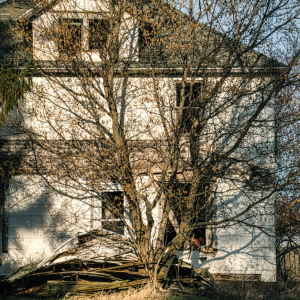
Local regulations can have a profound impact on homeowners who leave their houses without supervision.
- Vacant Property Tax: Some jurisdictions may impose a vacancy fee and property tax.
- Local Government: Neglecting to maintain the property and its surroundings can result in fines and is a breach of the local housing regulations.
What Are the Rights and Responsibilities of Property Owners?
Remembering what your rights and duties as a property owner can be:
- Repairs: Owners must comply with local housing regulations to dodge breaches.
- Landlord Responsibilities: If you rent your property on a short-term basis, you must ensure it is safe and fit for habitation.
What Role Does Maintenance Play in Managing Vacant Properties?
Effective management of a property means there is constant maintenance to avoid problems:
- Avoiding Physical Disintegration: Constantly carried out evaluations and repairs maintain the property’s value.
- Seasonal Assessments: Inspect the property on a periodic schedule to maintain it while it is empty.
How Often Should a Vacant House Be Inspected?
Regular inspections should be done for all the houses that are vacant:
- Inspection Frequency: Conduct periodic seasonal inspections on the property to resolve the maintenance problems sooner.
- Use of Checklists: Simple maintenance procedures enable all parts of a house to be checked during inspection.
What Maintenance Tasks Are Essential for Vacant Homes?
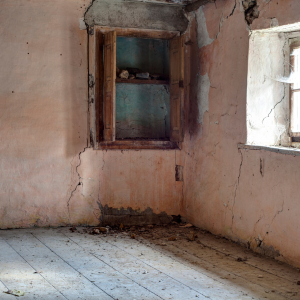
Carrying out the necessary maintenance activities enables empty houses to be properly maintained:
- Inspection and Maintenance: Responsively carried out maintenance keeps a house’s plumbing and electrical parts in working order.
- Preventive Action: Deal with issues of structural breakdown before they occur.
The empty property management tips above, plus the need for insurance, should make you interested in liability coverage.
For anything more, don’t hesitate to contact the real estate specialists of Company That Buys Houses.
How Does Weather Affect Vacant Houses in Texas?
The Texas climate can be rough on the region’s empty houses. Texas the state known for intense heat has its fair share of sudden storms too.
Structural Damage
Hurricanes and strong winds are two examples of bad weather that can damage empty homes. Rain and wind can damage roofs, and foundations can weaken over time if they aren’t taken care of regularly.
Temperature Fluctuations
Texas has very high and very low temperatures that can damage empty homes. When it gets hot, things can bend, and when it gets cold, they can crack.
Flood Risks
Places that often flood make empty homes even more dangerous. Protective measures, like storm shutters and good insurance, are very important to lower the damage that could be caused by flooding.
What Preparations Are Necessary for Severe Weather Conditions?
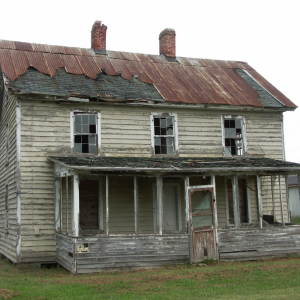
Ensuring empty homes are safe during bad weather depends on how well they are prepared. Take a look at these steps:
- Property Protection: Put up storm shutters and check the roof often.
- Flood Risk Management: Make sure you have good drainage and flood insurance.
- Emergency Plan: Plan what to do and who to call in an emergency.
- Seasonal Maintenance: Protect your home from the weather and care for the outside to keep it in good shape.
How Do Seasonal Changes Impact the Integrity of Vacant Properties?
Seasonal changes can have a big effect on the structure of empty homes. Keep an eye out for these things:
- Temperature Fluctuations: Heat and cold can damage things, but regular checks can stop it.
- Humidity: Too much humidity can damage your foundation if you don’t do anything about it.
- Lawn Care and Maintenance: Regular care of the outside helps avoid long-term damage.
Knowing how the weather affects the property helps keep it in good shape all year.
What Are the Pest Risks in a Vacant Home?
Pests present a significant risk to vacant homes. If not managed, rodents and insects can infest the property, posing health risks and causing property damage.
Control Measures
- Regular Inspection: Check for pests regularly.
- Extermination Services: Professional pest control can prevent big problems.
- Prevention Tactics: Keep areas clean and seal entry points.
How Can Pest Infestations Be Prevented in an Empty House?

Preventing pest infestations requires taking action:
- Sealing Entry Points: Cover gaps and holes to prevent access.
- Regular Inspection: Schedule frequent property inspections for early detection.
- Professional Services: Hire experts to perform thorough extermination and prevention.
- Cleanliness and Maintenance: Keep areas tidy to deter pests.
What Signs Indicate Pest Problems in Vacant Properties?
Spotting pest problems early can save time and money. Look for these signs:
- Droppings and Nests: Signs of rodent activity.
- Unusual Odors and Noises: These can indicate the presence of insects or animals.
- Visible Damage: Chewed wires or wood suggest infestation.
- Professional Inspection: Hire experts to confirm your suspicions and offer solutions.
Can a Vacant House Impact Neighborhood Safety?
Vacant houses can affect neighborhood safety:
- Crime Rates: Empty properties may attract vandalism and squatting.
- Community Watch: Neighbors can help monitor suspicious activity.
- Property Crime Prevention: Using surveillance and staying in touch with law enforcement can improve public safety.
How Do Vacant Homes Affect Community Crime Rates?
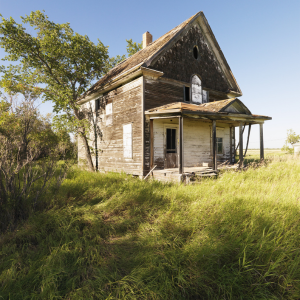
Vacant homes can increase crime rates, impacting neighborhood safety:
- Squatting and Theft: Empty properties become targets for crime.
- Police Reporting: Regular reports help track crime statistics.
- Neighborhood Watch Initiatives: Encourage residents to work together for better security.
What Measures Can Neighbors Take to Monitor Nearby Vacant Houses?
Neighbors can help monitor empty properties by:
- Community Watch Programs: Organize local groups to check on vacant houses regularly.
- Communication and Reporting: Stay informed and report suspicious activity quickly.
- Use of Security Cameras: Improve surveillance to deter criminals.
- Collaboration with Local Authorities: Work with police and neighborhood groups for ongoing vigilance.
How Does Long-term Vacancy Affect Real Estate Investments?
Real estate investments might suffer from long-term vacancies. Lack of maintenance on a vacant property might cause its value to drop. This might cause degradation. A reduced property value influences the real estate market, including Texas, where managing vacant properties can prove challenging. Long-term vacancies can, over time, raise maintenance expenses and result in financial losses should the property sell for less.
What Are the Economic Impacts of Keeping Homes Vacant?
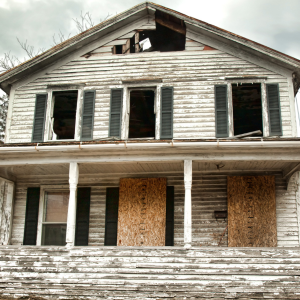
Vacant homes pose several economic challenges. Without rental income, owners may struggle to pay property taxes and mortgages. Neglected properties also risk housing code violations, leading to fines. Awareness of these financial impacts helps property owners decide whether to leave a home vacant or explore other options.
Are There Investment Alternatives for Long-term Vacant Properties?
Investors who wish for properties that don’t sit idle have alternatives. Renters will find a property more appealing if improvements are made with cash or under a loan. Real estate professional services and rental property management help maintain and market buildings properly. Fast resolution of renovation delays helps to lower vacancies and boost investment returns.
What Are the Environmental Concerns Related to Unoccupied Houses?
Unoccupied houses can cause environmental problems. Issues, including overgrown gardens and mold, could compromise the surroundings and public health. Frequent inspections help to identify these problems early on. Rules for abandoned buildings mandate that owners maintain their properties to specific environmental criteria.
How Do Vacant Homes Impact Local Ecosystems?
Vacant homes attract pests and create environmental issues, upsetting nearby ecosystems. These features could serve as pest breeding sites, compromising neighborhoods and wildlife. Maintaining empty houses can help preserve nearby ecosystems and minimize environmental effects.
What Environmental Regulations Apply to Maintain Vacant Properties?
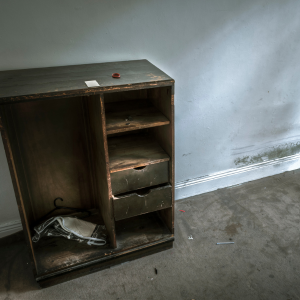
Property owners must abide by environmental rules to avoid fines when keeping empty houses. Housing code infractions can lead to municipal fines, and insurance might require correct maintenance. The rules of a homeowner association sometimes specify particular maintenance procedures meant to avoid environmental hazards.
Can Community Action Help Manage Vacant Houses?
Involving communities can help control empty homes. Neighbors working together will help address rising crime rates and the financial burden on public resources. Community members can spot empty houses and propose remedies to lessen their negative effects on their area.
How Can Local Initiatives Support Vacant Property Management?
Local projects can help manage empty land. These initiatives address hazards, including squatters and damage, and center on public health. Crime prevention driven by communities helps reduce theft and vandalism. Local projects also help with property management to guarantee better treatment of empty homes.
What Role Do Homeowner Associations Play in Addressing Vacancies?
Dealing with vacant homes calls for homeowner associations (HOAs). These associations enforce regulations requiring property maintenance and track how empty houses impact local areas. By doing this, HOAs help preserve community standards and property values, benefiting all homeowners.
Read on to learn more about how to sell a house in Texas. These findings apply all over Texas, including in El Paso, Houston, Dallas, Austin, San Antonio, Fort Worth, and nearby areas. For more help, contact us at (817) 623-5054.
FAQs:
What are the risks of leaving a house vacant in Texas?
Leaving a house vacant in Texas can cause problems like property damage and legal issues, such as adverse possession claims. There’s also the risk of squatters, pest infestations, and environmental hazards. To avoid these, use home security systems and maintain your house regularly to prevent structural damage and overgrown gardens.
How does vacancy affect home insurance policies?
If a house is vacant, your home insurance policy might change. Some insurers may cancel or adjust coverage if the house stays empty for too long. Talk to your insurance agent about vacant home insurance to protect against risks like fires and vandalism.
What steps should I take to maintain a vacant property?
To care for a vacant property, regularly check for things like water leaks or HVAC issues. Keep up with lawn care and pest control to avoid complaints and loss of property value. Consider hiring property management services to manage regular checks and emergencies.
What legal responsibilities do homeowners have for vacant properties?
Homeowners need to follow local housing codes to avoid legal trouble when a property is vacant. This includes dealing with liens, paying property taxes, and keeping the home in good condition to prevent code violations. Getting advice from a lawyer familiar with Texas housing laws can help.
What are the financial implications of a vacant house?
A vacant house can lead to costs like utility bills and higher insurance rates. There may also be property tax concerns and mortgage obligations. Review these factors carefully to handle financial responsibilities well.
How can a vacant home impact the neighborhood?
A vacant home can hurt the neighborhood by lowering nearby property values and causing public health issues. It might also lead to vandalism or illegal activities, affecting community safety. Starting a neighborhood watch program can help reduce these problems.
What should I do before leaving my home vacant for an extended period?
Before leaving your home vacant, secure all doors and windows, disconnect utilities to prevent accidents, and set up surveillance cameras. Ask a trusted neighbor to watch the property or hire a house sitter. Set up an emergency contact plan, too.
Can we sell a vacant house easily, and what challenges might arise?
Selling a vacant house can be tough due to decreased appeal and a longer time on the market. To improve chances, consider making minor repairs or staging the home. Real estate professionals with local experience can offer strategies for a successful sale.
Key Insights
- Owning a vacant house in Texas can lead to problems like lower property value and environmental damage. Regular upkeep is needed to prevent garden overgrowth and pest issues.
- Follow a simple seasonal inspection checklist and quickly fix emergencies to avoid structural damage.
- Know your legal responsibilities, including Texas homeowner duties, how mortgages affect you, and possible changes to your insurance when dealing with vacant properties.
- Hire property management services to handle risks like squatters and legal issues, keeping your property up to neighborhood standards.
- Use security systems to reduce burglary risks and manage utility disconnection effectively.
- Understand property tax implications and avoid tax liens by reporting vacant homes to the Texas Comptroller.
- Consider challenges like adverse possession claims and how vacant homes affect the neighborhood, especially with Texas foreclosure laws.
- When investing in uninhabited real estate, pay attention to public finances and possible credit concerns. Also, make sure all property valuations and taxes are clear.
- Work with a real estate professional to resolve the auction process and title transfer issues and improve property resale value.
- Winterize vacant properties and follow homeowner association rules to prevent utility issues. Stay within local guidelines to protect your investment.

